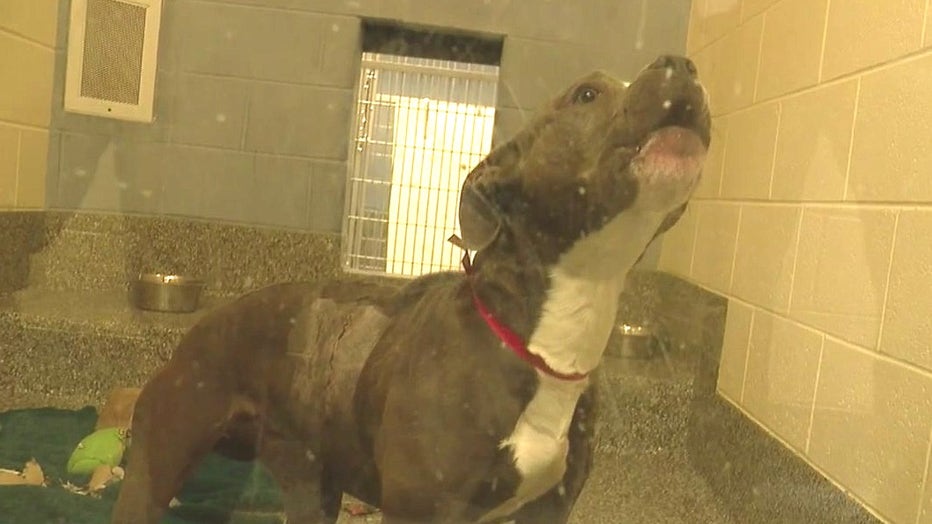Michigan Humane sees increase of pets from deported owners

Deported owner side effect leaves animal rescue operations with pets left behind
Leaders with Michigan Humane say the community is stepping up when it is needed most.
WESTLAND, Mich. (FOX 2) - The start of summer is typically a tough time for animal shelters who often see an influx after a spring breeding season.
But this year, those shelters are dealing with a new issue - animals being surrendered due to owners being deported.
The backstory:
It is an issue Michigan Humane locations like that in Westland, have been planning for ever since immigration-related executive orders were signed back in January. Leaders there say the community is stepping up when it is needed most.
"Especially with our families in Southwest Detroit, where we work very closely, we thought about what it would mean if a family was deported and what would happen to the animal then," said Doug Plant, the COO of Michigan Humane.
Ideally, the plan is to keep surrendered animals out of the shelter.
"It’s healthier for an animal to be in a home rather than a shelter," he said. "Just plain and simple. Our shelters, like a lot of the local shelters, are really healthy, well-contained. But it's not a great place, because they are confined in kennels a lot.
"Much like a human hospital, you don’t go there when you're feeling well."
In the past two months, the Michigan Humane Shelters have seen roughly 35 to 50 family pets surrendered for a variety of reasons, medical, financial or otherwise.
"These are folks that are struggling with anything from homelessness situation, to deportation," Plant said.
Admittedly, tracking the number of pets surrendered due to deportation of owners is hard, and it might be for good reason.
"When there is a crisis in that community, the community wraps their hands around the community and takes the animal in. That’s where we like to step in and help out."
Help in this case goes beyond offering shelter for a pet.
"We will provide a crate, food, and medical care to help stabilize that pet and keep it healthy," he said.
But that leads to another issue. Plant says fear of a deportation order can be partially to blame for a drop in participation of community outreach.
"We are seeing that pretty consistently in some of the community work that we are doing," he said. "Some of that is trying to figure out what is going on, how aggressive will law enforcement be in this scenario, and for us it’s how we get those resources to those folks."
Michigan Humane says they also help families who decide to take their pet with them after getting deported.
We are told a couple times they helped those families get a pet certificate needed for international travel.
The Source: Information for this report came from an interview with the Michigan Humane COO.


